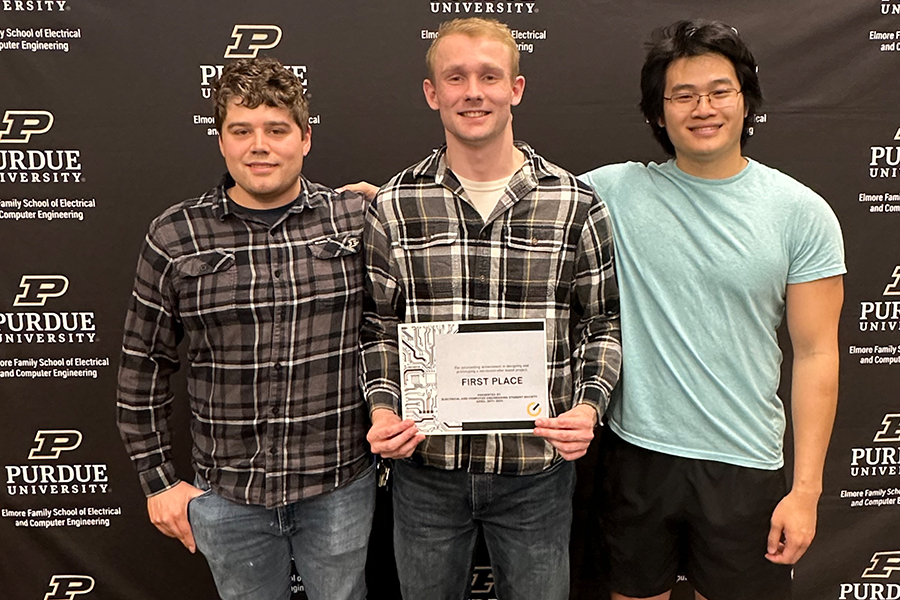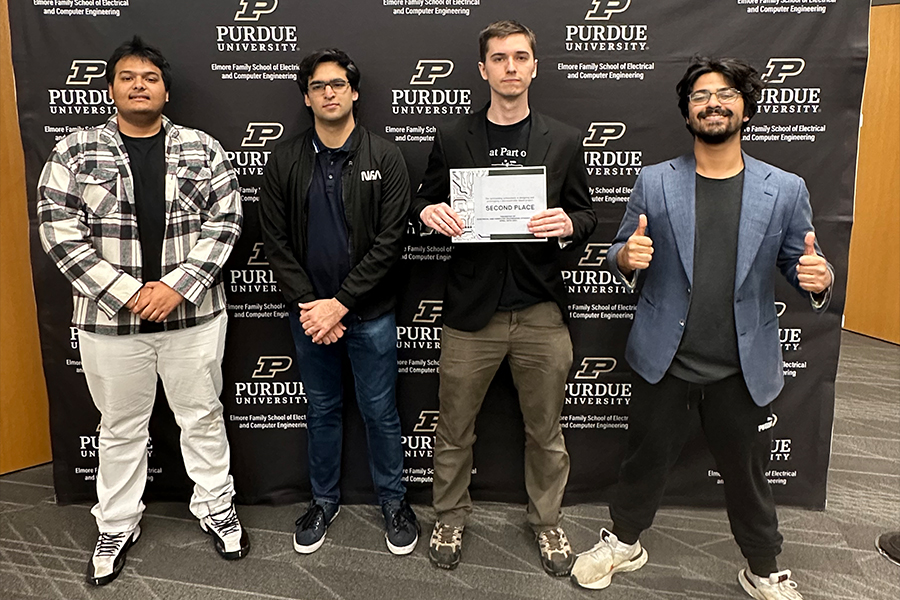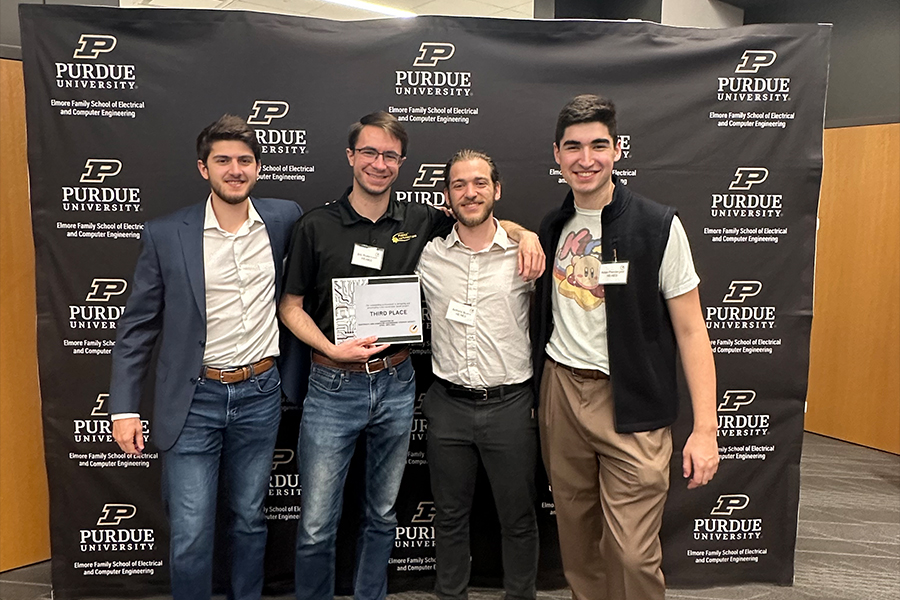Purdue students showcase projects during Spring 2024 Spark Challenge
Dozens of Purdue University students showcased projects they worked on for the last several months at the Spring 2024 Spark Challenge. The event is a campus-wide, corporate-sponsored design competition hosted by Purdue University’s Elmore Family School of Electrical and Computer Engineering in partnership with the ECE Student Society (ECESS).

Spectrum Defense Systems won first place with a product called DRES (Dynamic Radio Emulator System). DRES is the basis of a startup, Spectrum Defense Systems, which was founded by team lead Joseph Petersen in Fall 2023. Petersen used senior design to develop DRES, which is an RF emitter system designed for the U.S. military, specifically for training, deception, and jamming operations. The emitters replicate various military RF signatures and are controlled wirelessly via a mesh network from a central interface. In addition to Petersen, team members were Derek Fronek, Edmund Leung, and Aditya Agrawal.

Second place went to Atlas Sentinel. Team members were Ben Taylor, Adi Bhatnagar, Faaiz Memon, and Ali Shah. They designed and built a single-propeller drone that substitutes expensive mechanical components with sophisticated control algorithms.

HE-NES won third place with an FPGA-based hardware emulation of the original NES, released by Nintendo to US markets in 1985. Team members Anthony Butera, Aidan Prendergast, Eric Rodenkirch, and Grant Daniel recreated this classic game console with FPGA-based processing and compatibility with original peripheral hardware.
The Spark Challenge is held twice a year, at the end of the Fall and Spring semesters. It is open to all undergraduate students in any discipline at Purdue University, and can be an individual entry or a team of up to four members. It allows students to present their projects in one of two ways: demonstration only or demonstration and competition in the challenge, which is judged by ECE faculty and corporate partners.
